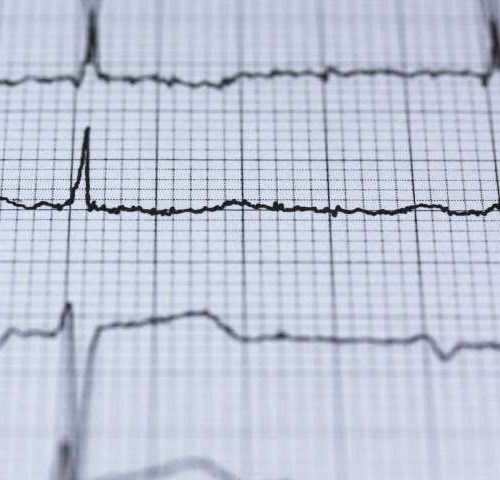by University of California, San Francisco Credit: Pixabay/CC0 Public Domain A single glass of wine can quickly—significantly—raise the drinker’s risk for atrial fibrillation, according to new research by UC San Francisco. The study provides the first evidence that alcohol consumption substantially increases the chance of the heart rhythm condition occurring within a few hours. The findings...
Tag: <span>Atrial fibrillation</span>
Exercise maintains normal heart rhythm in patients with atrial fibrillation
Sophia Antipolis, France – 23 Aug 2021: A six-month exercise programme helps maintain normal heart rhythm and reduces the severity of symptoms in patients with atrial fibrillation,according to late breaking research presented at ESC Congress 2021.1 “The ACTIVE-AF trial demonstrates that some patients can control their arrhythmia through physical activity, without the need for complex interventions...
Improved detection of atrial fibrillation could prevent disabling strokes
by Ross Neitz, University of Alberta Faculty of Medicine & Dentistry An implantable device that monitors for atrial fibrillation over 12 months is more than three times more effective at detecting the condition than standard care, and could help prevent disabling strokes in patients, according to an Alberta clinical trial. Credit: University of Alberta Faculty of...
Alcohol may have immediate effect on atrial fibrillation risk, events
AMERICAN COLLEGE OF CARDIOLOGY Alcohol appears to have an immediate–or near-immediate–effect on heart rhythm, significantly increasing the chance that an episode of atrial fibrillation (AFib) will occur, according to new data presented at the American College of Cardiology’s 70th Annual Scientific Session. The data revealed that just one glass of wine, beer or other alcoholic...
Opportunities to better detect, manage and treat patients with undiagnosed atrial fibrillation
by Boston University School of Medicine Credit: Pixabay/CC0 Public Domain Atrial fibrillation (AF) is associated with a higher risk of complications including ischemic stroke, cognitive decline, heart failure, myocardial infarction and death. AF frequently is undetected until complications such as stroke or heart failure occur. While the public and clinicians have an intense interest in detecting AF earlier,...
Research pinpoints sources of atrial fibrillation
by Amy Colgan, The Ohio State University People who suffer from persistent atrial fibrillation in the heart may find relief from a new treatment approach discovered by researchers at The Ohio State University Davis Heart and Lung Research Institute. Atrial fibrillation is an irregular heartbeat, or a condition in which the atria fail to contract in a strong, rhythmic way....
People with atrial fibrillation live longer with exercise
“Regular endurance training and good fitness seem to protect against serious cardiovascular events and early mortality for people diagnosed with atrial fibrillation,” says exercise physiologist Lars Elnan Garnvik. Garnvik recently completed his doctorate at the Norwegian University of Science and Technology. His latest article was recently published in the prestigious European Heart Journal. Garnvik and...
How AI helps people with atrial fibrillation
Atrial fibrillation is an irregular and often rapid heart rate that can increase your risk of stroke and other heart-related complications. Up to 6.1 million people in the U.S. have the condition, according to the Centers for Disease Control and Prevention. Dr. Paul Friedman, a Mayo Clinic cardiologist, uses artificial intelligence (AI) to identify people...
Taller people have increased risk for developing atrial fibrillation
Penn Medicine study shows height is a causal risk factor for AFib UNIVERSITY OF PENNSYLVANIA SCHOOL OF MEDICINE PHILADELPHIA — Taller people have an increased risk of developing atrial fibrillation (AFib), an irregular and often rapid heartbeat that can lead to stroke, heart failure and other complications, according to a new Penn Medicine study. The...
Research improves understanding of mechanism of atrial fibrillation
by Baylor College of Medicine Atrial fibrillation is the most common heart arrhythmia in humans. This condition increases the risk of heart failure, stroke, dementia and death, and current treatments have suboptimal efficacy and carry side effects. Looking to identify clues that might lead to better treatments, a group headed by researchers at Baylor College...



